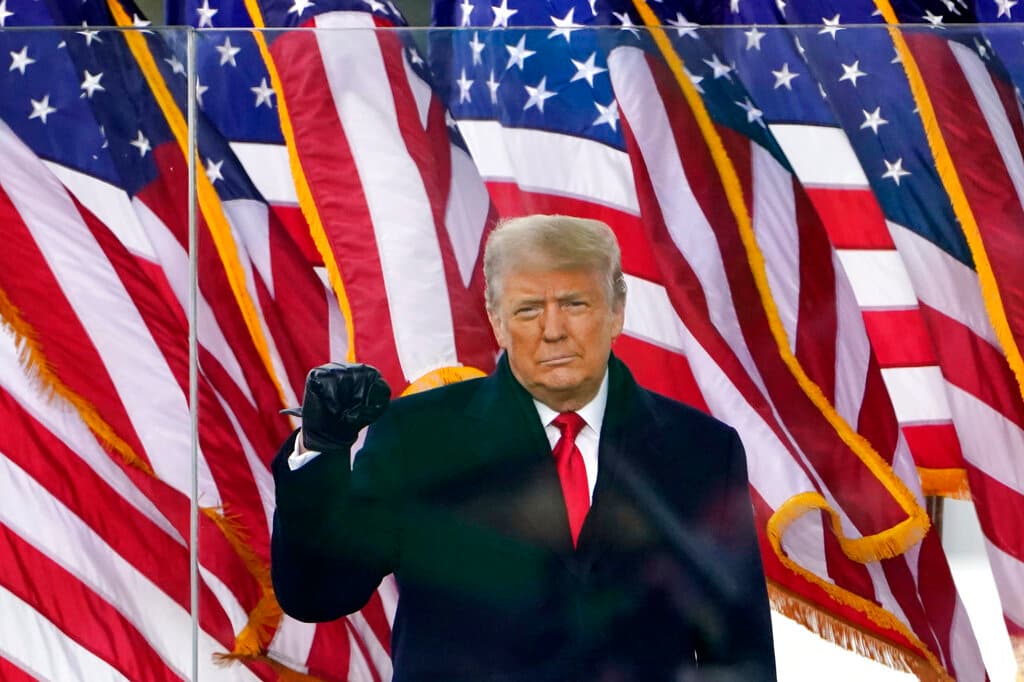A ‘King’ Trump Is Not, Judge Chutkan Rules, and He Fails To Rank for a ‘Get-Out-of-Jail-Free’ Pass
The jurist in the district of Washington, citing Hamilton and Washington, finds that neither the 45th, nor any other, president enjoys, after leaving office, immunity from prosecution.

Judge Tanya Chutkan’s denial of President Trump’s motion to dismiss criminal charges against him on the basis of presidential immunity queues up a constitutional clash over the nature of the presidency.
The relative dispatch with which the decision was rendered with means that Special Counsel Jack Smith’s case against Mr. Trump for attempting to overturn the 2020 election can move forward sooner than later.
The former president argues that he enjoys “absolute immunity from criminal prosecution” for acts performed during his presidency. The ruling against him is immediately appealable, one reason why Mr. Smith had urged a swift ruling. Both he and Judge Chutkan appear to be committed to a trial date of March 4.
Now the judge’s scathing ruling that the presidency “does not confer a lifelong ‘get-out-of-jail-free’ pass” means that Mr. Trump would face a jury if an appellate court— or the Supreme Court— does not intervene.
Judge Chutkan’s decision admits to no ambiguity in its holding that “former presidents enjoy no special conditions on their federal criminal liability” and may be subject to “federal investigation, indictment, prosecution, conviction, and punishment.” There is, she finds, “no provision in the Constitution conferring the immunity” that Mr. Trump seeks.
“America’s founding generation,” Judge Chutkan writes, “envisioned a Chief Executive wholly different from the unaccountable, almost omnipotent rulers of other nations at that time.” She turns to Alexander Hamilton in 69 Federalist for the “total dissimilitude” between the American president and the British monarch, for whom “there is no constitutional tribunal to which he is amenable; no punishment to which he can be subjected.”
Reminding Mr. Trump that he is no longer in office, Judge Chutkan reasons that the “widely acknowledged contrast between the President and a king is even more compelling for a former President.” Mr. Trump, she observes, “is not President.” This appears to be an allusion to her own determination in respect of Mr. Trump, in a prior case, that “Presidents are not kings, and Plaintiff is not President.”
Judge Chutakn also dismisses Mr. Trump’s contention that the Constiution’s Impeachment Clause bars his criminal prosecution. The former president’s position is that because he was acquitted by the Senate, he falls outside the Constitution’s dictate that someone “convicted shall nevertheless be liable and subject to Indictment, Trial, Judgment and Punishment, according to Law.”
The jurist finds that such a reading “collapses under the application of common sense” and rules that there is “no evidence that any of the Constitution’s drafters or ratifiers intended or understood former Presidents to be criminally immune unless they had been impeached and convicted.” She points as proof to Vice President Burr’s indictment in the absence of impeachment.
Nodding to the hesitation of courts to allow legal action against presidents to go forward for fear that the execution of the awesome duties of the office would be hindered, Judge Chutkan observes that it is “far less intrusive on the functions of the Executive Branch to prosecute a former President than a sitting one.”
Then again, too, the ability to prosecute a president after he leaves office for deeds he committee while he was in office could impinge on what Associate Justice Scalia, in a case about the concept of an independent counsel, called the “boldness of the president.” Judge Chutkin did not discuss that concern.
Chiding the last president with the example of the first one, Judge Chutkan marks Washington’s “decision to voluntarily leave office after two terms,” which “marked an extraordinary divergence from nearly every world leader who had preceded him, ushering in the sacred American tradition of peacefully transitioning Presidential power.” She asserts that tradition survived intact until January 6, 2021.
Judge Chutkan writes that Mr. Trump is “charged with attempting to usurp the reins of government as Washington forewarned.” The Father of His Country, in his farewell address, cautioned against “cunning, ambitious, and unprincipled men.” Now, the burden is on Mr. Trump to persuade the riders of the District of Columbia Appeals Circuit and, possibly, the Nine, that he did not, on January 6, make of Washington a prophet.

